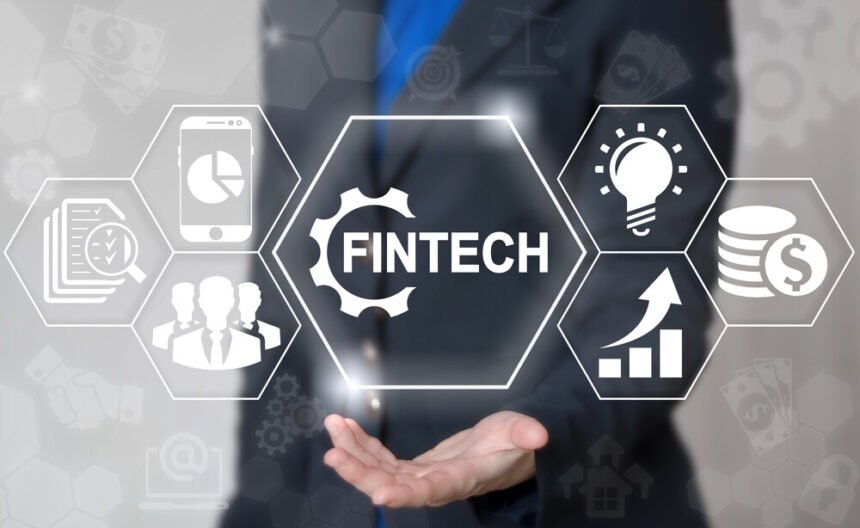The financial service industry has been revolutionized by technological advancements. The way in which banks and fintech enterprises operate today has been fundamentally changed by technological advancements. Numerous advantages can be identified when discussing fintech big data. When people think about technology and banking, they first think about online transactions, banking apps, and obviously, Internet banking. But the ways in which technology changed the sector go beyond these, begin used at a large scale in all internal processes of an alternative banking institution and services, or even banks, through third-party services, at a small scale; and the worldwide banking system, at a large scale.
The change comes from the data generated by everybody’s electronic devices. From smartphones to laptops, to our homes and appliances, everything stores data regarding our habits and preferences. And this data can be easily used by the Fintech sector to offer better, more reliable services and products for all clients, but also to decrease the risks at which banking institutions and alternative financial institutions are exposed. Below are presented some of the ways in which big data changes the fintech industry.
What is Big Data?
As previously mentioned, big data consists of all data gathered by our electronic devices, both structured and unstructured, which can be processed with certain algorithms and analysis methods to manage and extract valuable pieces of information about the user. This data can be used afterwards in various scopes, depending on the parties involved. In the Fintech sector, Big Data can be used to anticipate customer behaviour, but also to create protective strategies and policies for alternative banks and financial institutions from all around the world. Each day, across the world, approximately 2.5 quintillion bytes of data are generated. And this rate is expected to grow furthermore in the near future. Well, all this data can be used in multiple highly valuable ways, with the help of the appropriate tools and algorithms. But how can be Big Data used in the banking and Fintech industry?
Customer Segmentation
Fintech companies are well-known for being customer-focused, and customer segmentation is one of their interest areas. The financial industry is focused on dividing their customers depending on age, gender, online behaviour, economic status, and geographical coordinates. In this regard, fintech companies can easily analyze spending habits depending on age, gender, and social class. They can also easily tailor their services and alternate banking products to meet the demand and needs of each customer segment. The most valuable customers, namely those spending the most money, can also be identified. This will generate higher levels of customer satisfaction, as people generally seek highly personalized offers and financial products.
Fraud Detection
Another advantage of using Big Data in the financial industry is the fraud detection prospects that it opens. Obviously, with the rise of online banking and internet transactions, companies in the sector and their clients are more susceptible to fall victim to fraud. Big Data helps banks and other financial institutions to better understand the spending habits of each customer, but also their usual online patterns. In this case, when unusual activity is detected by the enterprise, the holder of the account can be easily contacted and ask or informed about a transaction that seems suspicious.
Risk Management
Obviously, risk management is an area of high interest in all industries. Once again, in the finance industry, Big Data comes with the immense advantage of identifying potential risk in terms of bad investments or bad payers. While Big Data cannot completely prevent such risks, it can identify those at early stages and prevent further development into risky paths. Big data can help companies in the financial industry tailor programs and strategies that will assess the potential risks and minimize those.
Personalised Services
In the banking and fintech industry, like in many others, offering personalised services is one of the greatest marketing tools available. Fintech companies like Contis Group claim that more and more customers they have search for personalized and flexible fintech services and packages. The pressure to create personalized services in the industry is also driven by the increasing number of companies that adopt such strategies, thus where a keen competition is present. Alternative banking institutions began to use the services of fintech companies to improve their services and offer more personalized packages, but also a better, more comprehensive, faster infrastructure, which contributes to creating a more personalized and facile experience for the final consumer. Not only can fintech companies identify spending patterns to make banking recommendations, but they can also use those to help the final user save more money if this is one of their goals. Unlike traditional banking institutions, fintech companies focus more on creating personalized financial services that meet the very specific demands of the final consumer, and this is where Bid Data comes in discussion.
Better Compliance Capabilities
Companies that offer financial services are always required to follow specific rules. This calls for frequent audits and compliance controls to follow the very specific demands of the industry in terms of security, privacy, data, and finance. Big Data contributes to catering these companies with valuable information in terms of consumer needs and expectations regarding those. Using cloud-based data, these companies can now use analytics packages and integrate those into their systems, allowing them to have a more actionable insight in this regard. Moreover, those companies in the fintech industry that offer personalized financing options can now analyze and detect where a financial crisis is more likely to occur and adapt their strategies to follow some strict preventive measures.
The fintech industry is evolving at a fast pace, and starting with internet banking services, companies in the sector have increased their capabilities and the financial services offered. Machine learning and artificial intelligence seem to open new paths in all industries and the alternative finance sector seems to also benefit greatly from those. Ultimately, this translates into better, more personalized services for both B2B and B2C consumers.










